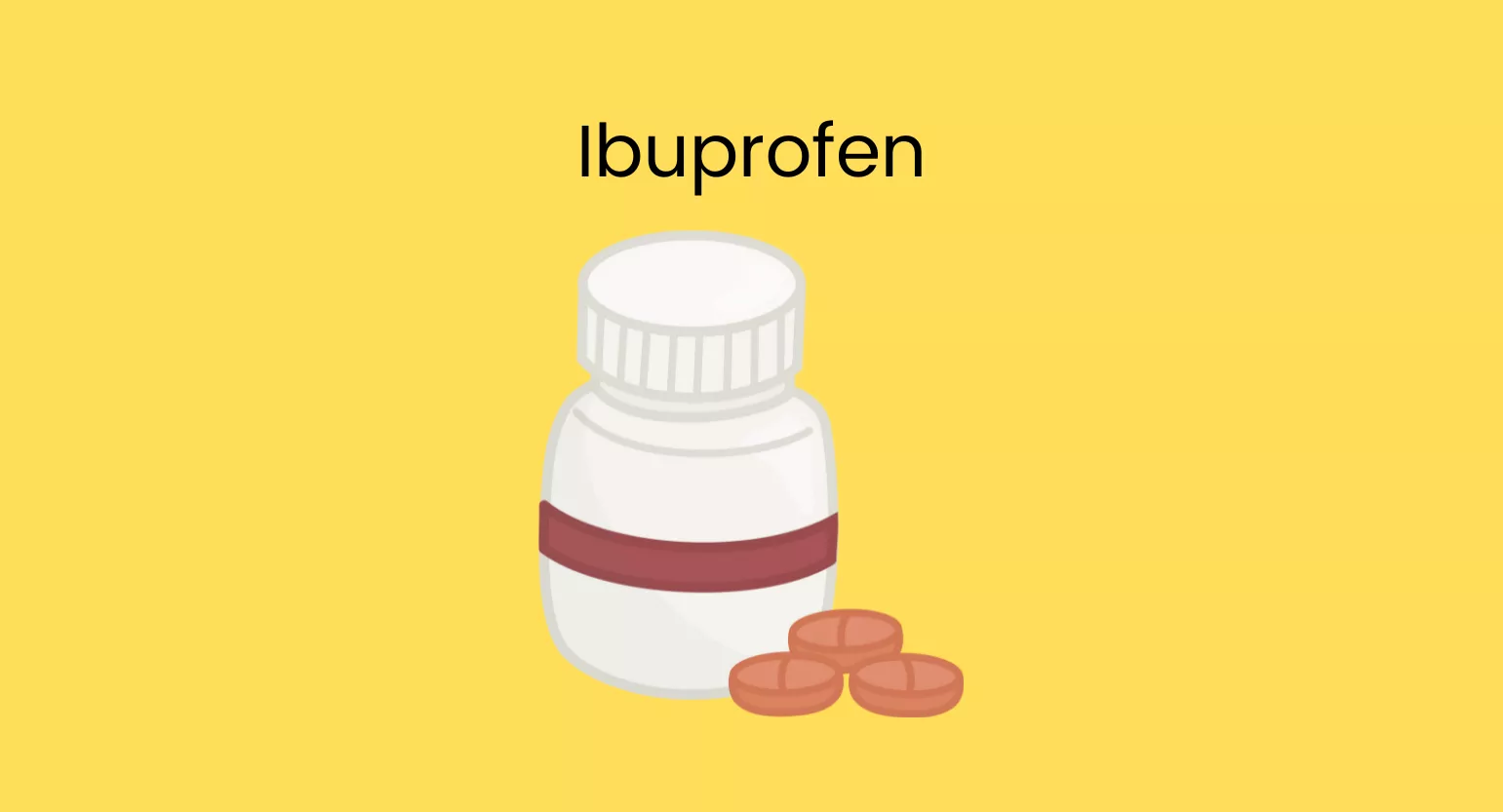Ibuprofen is a common over-the-counter medicine with anti-inflammatory qualities. It’s commonly used to treat mild to moderate pain, fevers, and inflammation.
Some people claim that taking ibuprofen alongside kratom can enhance the effects of this Asian substance. So, is there any truth to these claims, and is it safe?
In this article, we’ll look at:
- How ibuprofen interacts with kratom
- Whether it’s safe to combine the two substances
- What ibuprofen is, its uses, and side effects
- What kratom is, how it’s used, and its effects
- The different kinds of kratom leaf
We’ll also be answering a few questions we hear often.
Does Kratom Interact With Ibuprofen?
Yes. Kratom does interact with ibuprofen if they’re consumed at the same time or in a similar timeframe. Both substances are often used for relieving pain, and some kratom users believe that consuming the two together enhances the effects of both.
Ibuprofen is a non-steroidal anti-inflammatory drug (NSAID) that inhibits the production of prostaglandins — chemical messengers in the body that encourage an inflammatory response. On the other hand, kratom contains various alkaloids that act on opioid receptors.

Although ibuprofen and kratom act on different functions, their effects do somewhat overlap. Both can alleviate pain and produce drowsiness. Combining the two substances could enhance these effects.
Taking ibuprofen alongside kratom could lead to an agonistic interaction — this may enhance and intensify the effects of both substances. Although this could be an advantage, it could also make for an unpleasant and dangerous experience.
Taking ibuprofen alongside kratom also slows elimination through metabolic competition. When kratom competes for metabolism in the liver, it slows down the elimination of both substances, which leads to a prolonged duration of effects.
Cytochrome P450 enzymes are responsible for metabolizing most drugs. Kratom and ibuprofen are broken down by similar enzymes of this class.
- Kratom is broken down in the liver by the cytochrome P450 enzymes CYP3A4, CYP2D6, and CYP2C9 [1].
- Ibuprofen is broken down in the liver, primarily by the CYP2C8 and CYP2C9 enzymes [2].
Ibuprofen and kratom both have an affinity for the CYP2C9 enzymes. Therefore, when consumed together, they’ll compete for metabolization, leading to a longer duration of effects.
Metabolic competition can be dangerous — regularly taking kratom alongside substances such as ibuprofen that compete for metabolism can lead to a toxic buildup of chemicals in the liver.
Kratom & Ibuprofen Interactions
Ibuprofen is a non-steroidal anti-inflammatory drug. Drugs in this class may similarly interact with kratom through agonistic interaction and metabolic competition.
Here’s a list of other NSAIDs that interact with kratom in the same way:
- Naproxen (Aleve, Naprosyn)
- Celecoxib (Celebrex)
- Meloxicam (Mobic)
- Diclofenac (Voltaren, Cataflam)
- Indomethacin (Indocin)
- Ketoprofen (Orudis, Actron)
- Piroxicam (Feldene)
- Etodolac (Lodine)
- Nabumetone (Relafen)
- Oxaprozin (Daypro)
- Sulindac (Clinoril)
- Mefenamic acid (Ponstel)

It’s important to note that although these drugs are similar to ibuprofen in that they’re non-steroidal anti-inflammatory drugs, they may induce adverse reactions when combined with kratom. There are few studies into the effects of these substances when used with kratom.
It’s best to avoid consuming any substance alongside kratom to reduce the chances of side effects.
Is it Safe to Consume Kratom With Ibuprofen?
It’s not recommended to consume kratom with ibuprofen because they’re metabolic competitors, and toxic levels of both substances can build up in the liver or bloodstream over time. However, there’s not as much risk if you use low doses infrequently.
If you do happen to consume kratom and ibuprofen together, keep an eye out for any side effects and try not to make a habit out of the combination.

Metabolic competition becomes extremely risky when you use both kratom and ibuprofen (or other metabolic competitors) daily or more than once per week. Both substances build up in the body quickly as the liver struggles to eliminate them fast enough.
Accumulating toxic levels of ibuprofen as well as mitragynine and 7-hydroxymitragynine from kratom, can lead to a decline in liver function, a higher risk of developing stomach ulcers, internal damage, and in the worst case, kidney or liver failure.
Always consult your doctor before consuming any over-the-counter or prescription medication alongside kratom.
What is Ibuprofen?
Ibuprofen is an anti-inflammatory drug that’s a common pain reliever. It belongs to a class of medications called propionic acid derivatives. It works by inhibiting the production of prostaglandins — chemicals in the body that are responsible for inflammation, pain, and fever responses.
Ibuprofen in pill form can be purchased over the counter in lower doses, but doctors also prescribe higher doses for managing various conditions.
Ibuprofen Details & Specifications

| Substance Name | Ibuprofen |
| Trade Names | Advil, Motrin, Nurofen, Caldolor, Brufen, Ibuprin, Medipren, Midol, Rufen, Anadin Ibuprofen |
| Classification | Non-Steroidal Anti-Inflammatory Drug (NSAID) |
| CYP Metabolism | Cytochrome P450 — CYP2C9 |
| Interaction with Kratom | Metabolic Competitor |
| Risk of Interaction | Moderate |
What is Ibuprofen Used for?
Ibuprofen is an over-the-counter pain medication used for minor ailments. However, higher doses help treat inflammatory conditions such as ankylosing spondylitis, rheumatoid arthritis, osteoarthritis, and other forms of arthritis.
Ibuprofen is commonly used for the following purposes:
Pain Relief
Ibuprofen is effective in reducing mild to moderate pain. It’s effective at easing pain from headaches, dental pain, menstrual cramps, muscle aches, backaches, and minor injuries.

Fever Reduction
Ibuprofen can help reduce fever from infections or illnesses that cause an elevated body temperature and profuse sweating.
Inflammation Reduction
Ibuprofen can reduce inflammation associated with conditions such as arthritis, but it’s more commonly used as an over-the-counter drug for less severe inflammation from sprains, strains, and bruising.
Joint & Musculoskeletal Conditions
Ibuprofen can be prescribed in higher doses to alleviate pain and inflammation caused by osteoarthritis and rheumatoid arthritis.
Dysmenorrhea
Ibuprofen is commonly used to relieve the pain and discomfort associated with menstrual cramps.

Headaches & Migraines
Ibuprofen can relieve various types of headaches, including tension headaches and migraines.
It’s important to note that while ibuprofen can help manage some symptoms and provide temporary pain relief, it doesn’t selectively treat the underlying cause. A healthcare professional usually provides a long-term treatment strategy for persistent or severe symptoms.
What’s the Dose of Ibuprofen?
The effective dose of ibuprofen depends on the severity of the symptoms, as well as factors such as age, weight, and other medications.
For Pain Relief & Fever Reduction
The recommended dose for adults with mild to moderate pain or fever is 200 to 400 milligrams (mg) of ibuprofen every four to six hours, as needed. The maximum daily dose of over-the-counter ibuprofen should never exceed 1200 mg. However, a doctor may prescribe up to 3200 mg daily in certain cases.
For Inflammatory Conditions
The normal prescribed dose for inflammatory conditions and arthritis is 400 to 800 milligrams three to four times daily. The maximum dose for treating inflammatory conditions shouldn’t exceed 3200 mg daily unless specified by a healthcare professional.

Please note that these are general guidelines, and dosages can vary depending on the individual. Always consult your doctor or follow the instructions provided by your pharmacist for the appropriate dosage and duration of ibuprofen use based on your specific needs.
You should also be cautious when administering ibuprofen to children. Dosages for children vary based on age and weight — it’s best to consult a pediatrician before giving a child any over-the-counter medication.
Other Names for Ibuprofen
Ibuprofen is the generic and most widely-used name for the compound titled “(RS)-2-(4-(2-methylpropyl)phenyl)propanoic acid.”
This drug goes by various brand names depending on where you shop and the country you live in. Most of these brands still list the drug clearly as ibuprofen on the packaging.
Here are some common brand names for ibuprofen:
- Advil
- Motrin
- Nurofen
- Caldolor
- Brufen
- Ibuprin
- Medipren
- Midol
- Rufen
- Anadin Ibuprofen

Are There Any Side Effects of Ibuprofen?
Like most over-the-counter and prescription medications, ibuprofen can cause side effects. The severity of the side effects can vary from person to person. Minimize the risk of developing a negative reaction to ibuprofen by taking it at the lowest effective dose for the shortest duration necessary.
If you experience any concerning or severe side effects while taking ibuprofen, stop taking the medicine and seek medical attention immediately.
Some of the common side effects of ibuprofen include:
- Diarrhea or constipation
- Dizziness or lightheadedness
- Fluid retention or swelling (edema)
- Headache
- Increased blood pressure
- Increased risk of bleeding or bruising
- Nausea or vomiting
- Rash or itching
- Ringing in the ears (tinnitus)
- Upset stomach, indigestion, or heartburn
In some cases, ibuprofen can cause more serious side effects, such as:
- Severe allergic reactions (difficulty breathing, hives, swelling of the face, lips, tongue, or throat)
- Stomach ulcers or bleeding (signs may include black, tarry stools or vomit that looks like coffee grounds)
- Liver or kidney problems
- Skin reactions, such as severe blistering or peeling
- Cardiovascular problems (e.g., heart attack, stroke)

Some people should refrain from consuming ibuprofen entirely. People in certain circumstances or with specific conditions must exercise caution when consuming ibuprofen or avoid taking it altogether.
If you fall into the following categories, seek medical advice before consuming this drug:
- Allergic reaction: If you’ve had an allergic reaction to ibuprofen or any other anti-inflammatory drug (aspirin, for example), it’s advisable to avoid ibuprofen.
- Asthma: Ibuprofen can trigger asthma symptoms or exacerbate breathing difficulties in asthma sufferers. If you have asthma, especially aspirin-sensitive asthma, speak with your doctor before taking ibuprofen.
- Stomach ulcers or gastrointestinal bleeding: Ibuprofen can increase the risk of stomach ulcers or gastrointestinal bleeding. If you have a history of stomach ulcers, bleeding disorders, or other gastrointestinal issues, speak to your doctor before using ibuprofen.
- Kidney or liver problems: Individuals with impaired kidney or liver function may be at a higher risk of experiencing adverse effects from ibuprofen. If you suffer from kidney or liver disease, it’s unlikely that you’ll be able to consume ibuprofen. Speak with a healthcare professional to determine if ibuprofen is safe if you suffer from liver or kidney issues.
- Cardiovascular disease: Ibuprofen may increase the risk of cardiovascular events, such as heart attack or stroke, when used in higher doses frequently. If you have a history of cardiovascular disease or are in the “risk category” for cardiovascular issues, speak with your doctor before using ibuprofen or any other over-the-counter drug.
- Pregnancy: Ibuprofen is not recommended during the third trimester of pregnancy due to potential risks to fetal development. You should avoid most over-the-counter drugs and kratom if you’re pregnant, but if you require pain relief, consult a healthcare professional before using ibuprofen.
- Children: Ibuprofen should be used with caution in children under 16. The dosage should be appropriate for their age and weight. It’s best to consult with a pediatrician for guidance when considering using ibuprofen for children.
What is Kratom?
Kratom is often sold in powder form. It comes from the leaves of Mitragyna speciosa — an evergreen tree native to Southeast Asia. It can grow in Thailand, Indonesia, Vietnam, Cambodia, Malaysia, the Caribbean, Papua New Guinea, and certain African countries.

Kratom leaves contain various active compounds that interact with the opioid receptors in the brain. Mitragynine is responsible for most of the psychoactive effects of kratom when ingested. However, other compounds in the species contribute to a sort of “entourage effect,” similar to how cannabis works.
There are several different genetic variants — or strains — of the Mitragyna speciosa tree, and each has slightly different chemical profiles. These strains all produce similar effects, but they can differ slightly — with some producing more stimulation and others seeming more sedative.
What’s Kratom Used for?
Kratom can be used recreationally, but most people use it to help ease symptoms from various physical and mental conditions.
Depending on the type of kratom, how it’s consumed, and the dose, this substance can produce the following:

Some studies have outlined the effectiveness of kratom for people with opioid withdrawal [3]. Those with addictions to alcohol, opioids, and other substances have managed to kick their addictions or limit their dependence through the use of kratom, according to some reports and surveys [4, 5].
Here are some common conditions people use kratom for:
What’s the Dose of Kratom?
The effects of kratom are varied, depending on a variety of factors. The user’s weight, age, tolerance, and metabolism affect how potent a particular dose of kratom is. The type of kratom and how much food you’ve consumed before taking it also alter the effects.
The best way to figure out the ideal dosage for your needs is to use a kratom dosage calculator.

Generally speaking, lower doses are more stimulating, moderate doses are more relaxing, and higher doses are sedating.
- Low Dose: 1 to 3 grams
- Moderate Dose: 3 to 5 grams
- High Dose: 6 to 10 grams
Kratom’s Side Effects
Kratom is relatively well-received when used responsibly. You’re unlikely to experience many side effects from kratom if you use low doses and take breaks. However, everyone reacts differently to this substance, and although some may not experience any side effects, others may react negatively after consuming a small amount of kratom.
You increase the risk of developing side effects if you use large doses, use kratom too frequently, or mix it with another substance.
The possible side effects of kratom include:
- Changes in libido
- Constipation
- Dizziness
- Dry mouth
- Fatigue
- Headache
- Increased sensitivity to hot or cold temperatures
- Increased urination
- Insomnia
- Irritability or mood swings
- Loss of appetite
- Nausea
- Sweating
- Tremors or shaky movements

What Are the Different Types of Kratom?
Four main types of kratom are determined by the colors of the leaf’s veins. Each strain has slightly different qualities and produces altered effects.
Here are the four main types of kratom and the effects they produce:

1. White Vein Kratom
White vein kratom is known for its energizing properties, providing users with heightened mental alertness and improved focus. This is the most stimulating strain of kratom, but it can still induce sedative effects in higher doses.

2. Green Vein Kratom
Green vein kratom offers a combination of stimulation and relaxation. The levels of stimulation of sedation vary depending on the dosage consumed. This is a great choice if you’re looking to enhance general mood, improve focus, or aid insomnia.

3. Red Vein Kratom
Red vein kratom is highly regarded for its calming effects. This strain has relaxant qualities that help alleviate pain, improve anxiety, and promote better sleep.

4. Yellow Vein Kratom
Yellow vein kratom is created through the fermentation of green vein kratom. It stands apart from the strains listed above because the fermentation process modifies the chemical composition of the leaf. Yellow vein kratom is far smoother, milder, and more relaxing than green vein kratom.
Frequently Asked Questions About Kratom
1. What Safe Substances Enhance the Effects of Kratom?
Several substances can enhance kratom’s effects or act as potentiators. Some combinations are relatively safe; others can be dangerous — especially when used frequently.
Here’s a list of some of the most commonly combined substances that are usually safe to mix with kratom:
- Coffee: Kratom and coffee both induce stimulant effects. Some users enjoy the combination to improve focus and induce an energy boost.
- Lemon: The citric acid and enzymes — specifically CYP3A4 — in lemon juice can aid with the breakdown of the active compounds found in kratom. This may make these alkaloids more readily available to the body, leading to a faster and more intense onset of effects.
- Apple Cider Vinegar: This potentiator may speed up onset times and increase the availability of the active alkaloids in kratom in much the same way as lemon juice.
- Turmeric: The curcumin within the Asian spice turmeric is a metabolic competitor similar to ibuprofen. It prolongs the effects of kratom when ingested. It may not be as dangerous as mixing over-the-counter metabolic competitors with kratom, but it should be used responsibly and infrequently to avoid side effects.
- Chamomile: Some people enjoy mixing chamomile with kratom. It may enhance the relaxing effects associated with larger kratom doses.

2. What Substances Are Dangerous to Take With Kratom?
Combining some substances with kratom can be incredibly dangerous. Taking any other drug alongside kratom is generally not recommended, but some combinations appear to be relatively harmless if combined infrequently. On the other hand, combining kratom with a select group of drugs can prove lethal — even without frequent use.

Here are some dangerous substance classes to avoid combining with kratom:
- Benzodiazepines
- Alcohol
- Alpha-Blockers
- ACE Inhibitors
- Barbiturates
- Eugeroics
- Opiates
- Peripheral Adrenergic Inhibitors
- Tricyclic Antidepressants
- Stimulants
Read More: Exhaustive List of Kratom Drug Interactions: (260+ Medications)
3. Where Can You Buy Kratom From?
The legality of kratom differs from country to country. As it stands, kratom is legal to sell, purchase, and consume in the United States, Canada, and some countries in Europe. If you live in a region where kratom is legal, it should be relatively easy to get a hold of.
You can buy kratom online from a variety of different vendors — however, some are more reputable than others. The quality of kratom powder, teas, and extracts varies from place to place.

Many people have reported little to no effects — or too strong or odd effects — from kratom bought from unreliable sources. “Dodgy” kratom vendors may not source their products ethically or care about how the kratom is cultivated, dried, and prepared — this can lead to powders and extracts with trace levels of heavy metals, pollutants, and other toxins.
If you want to find the best kratom in your area, it’s important to research and not jump at buying from the first company you see online.
If you want to find out more about how to source high-quality kratom and how to find a reputable vendor in your area, check out:
- Kamble, S. H., Sharma, A., King, T. I., León, F., McCurdy, C. R., & Avery, B. A. (2019). Metabolite profiling and identification of enzymes responsible for the metabolism of mitragynine, the major alkaloid of Mitragyna speciosa (kratom). Xenobiotica, 49(11), 1279-1288.
- Rinnofner, C., Kerschbaumer, B., Weber, H., Glieder, A., & Winkler, M. (2019). Cytochrome P450 mediated hydroxylation of ibuprofen using Pichia pastoris as biocatalyst. Biocatalysis and Agricultural Biotechnology, 17, 525-528.
- Boyer, E. W., Babu, K. M., Adkins, J. E., McCurdy, C. R., & Halpern, J. H. (2008). Self‐treatment of opioid withdrawal using kratom (Mitragynia speciosa korth). Addiction, 103(6), 1048-1050.
- Havemann-Reinecke, U. (2011). P01-50-Kratom and alcohol dependence: Clinical symptoms, withdrawal treatment and pharmacological mechanisms-A case report. European Psychiatry, 26(S2), 50-50.
- Coe, M. A., Pillitteri, J. L., Sembower, M. A., Gerlach, K. K., & Henningfield, J. E. (2019). Kratom as a substitute for opioids: results from an online survey. Drug and alcohol dependence, 202, 24-32.










